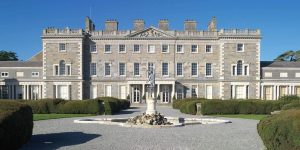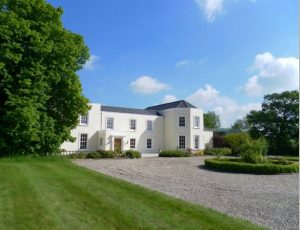A Prime Landmark Hotel Development Opportunity Within the UNESCO Boyne Valley Co. Louth, Ireland…Update
Location: Drogheda, Co. Louth, Ireland 55 km North of Dublin…120 km South of Belfast
Name: Open to new owner …Currently it is a Pig Farm.. Little Grange Farm
Guide Price: €1.5m as is….new price
Guide Price per Key: TBA
No. of Keys: Would make 150 rooms/lodges
The Opportunity:
This 11 acre site, which has been run as family-owned farm for the past 40+ years, is ideally located to the Boyne Valley, a huge tourist site famous for it’s history. Great access to both Dublin and Belfast, less than 30 minutes drive of Dublin airport. The area has huge numbers of visitors with little attractive accommodation options. The current owners envisage the opportunity being for an Eco-Sustainable high-end leisure resort style with hotel and/or lodges.
Planning is not consented, other than the authorities have confirmed that touristic development will be ideal.
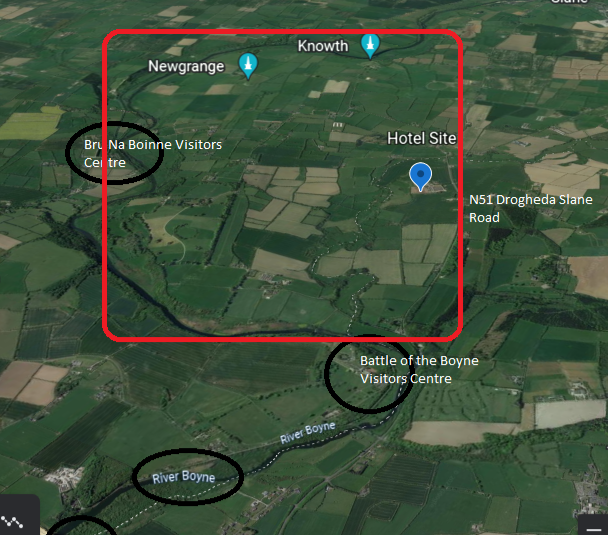
Notice the large green areas and the lack of significant developments. Any structures are homes and farms that have been in the area for generations. The current hotel site is one of those farms, which is now closing it’s doors.
Also highlighted is the close proximity to the burial tombs of Dowth, Knowth and Newgrange (2.7 km as the crow flies) as well as the Battle of the Boyne Visitors Centre, with Slane village (6 km) and Distillery along with the medieval town of Drogheda (7km) nearby.
The M1 motorway is 5km from the site (Exit 10, Drogheda North) for ease of access to Dublin, Dublin Airport as well as Belfast (1 h 14 minutes).
The hotel site is comprised of three folios with a total area of 11.29 acres.
This site has been operating as a farm for the past forty years but is now closing that business and the owner would like to see the site developed to it’s full potential.
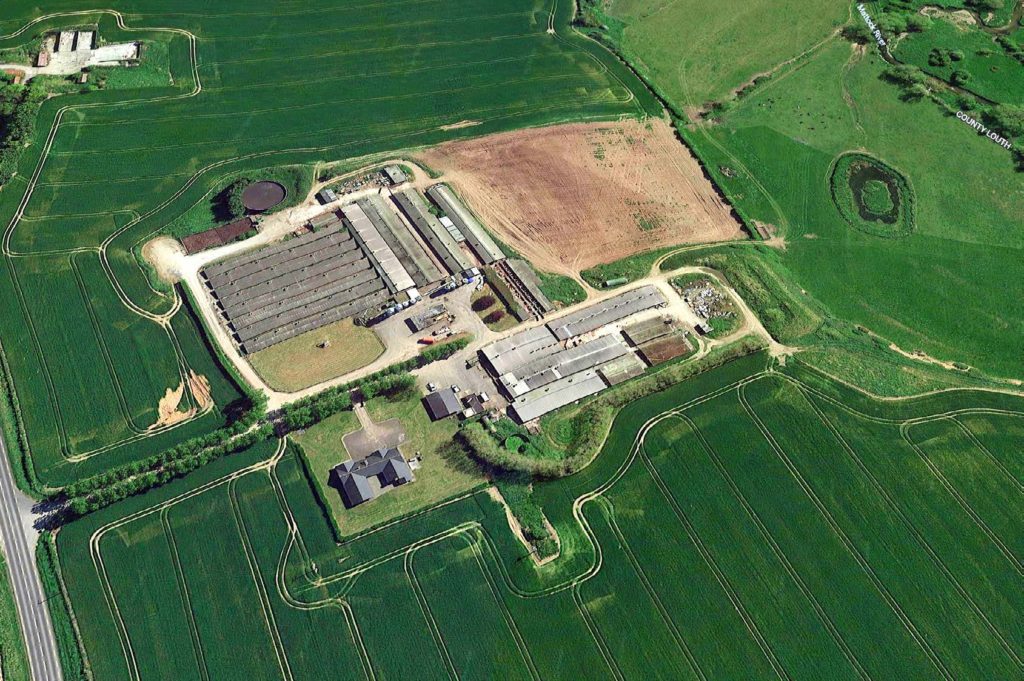
The owner has spoken with Louth County Council enquiring about a change of use and senior planners indicated that a change of use towards tourism accommodation would be in line with the Louth County Development Plan.
The site received planning permission in 2018 to rebuild the farm buildings over a ten-year timeframe and planned to open a food tourism experience on this site, called The Bacon Tour.
This development did not go ahead but during the pre-planning and planning process the Council became very familiar with the site as they are very keen to see tourism increased in County Louth.
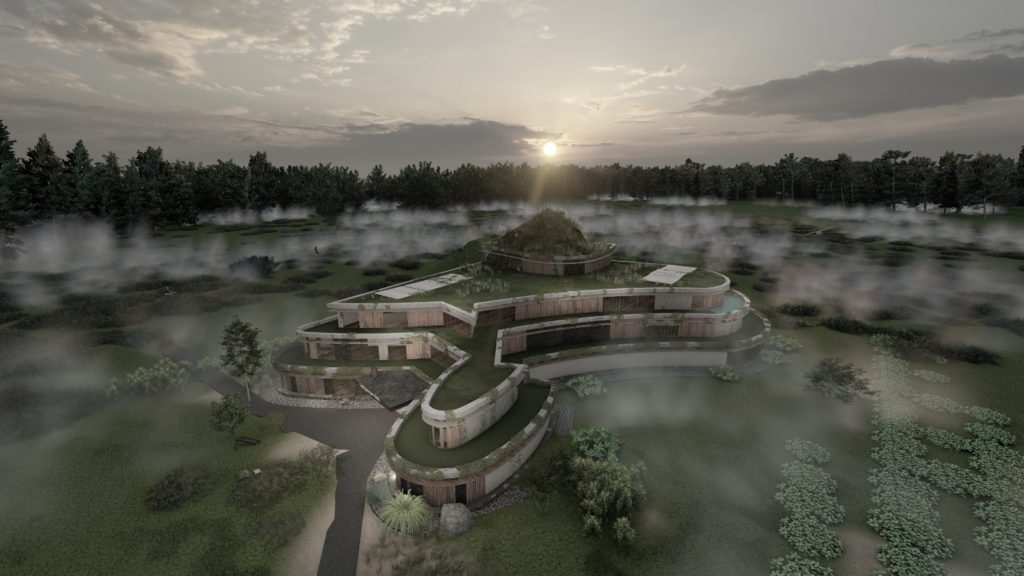
The owner is interested in talking with potential developers about selling the farm to them as a development site for a hotel/tourism accommodation. The owner also seeks to open the food tourism experience in the house on the remaining folio in this map.
The application to rebuild the intensive pig farm and integrate a food tourism experience on site, was approved first time and without objections.
The site is being sold pre-planning.
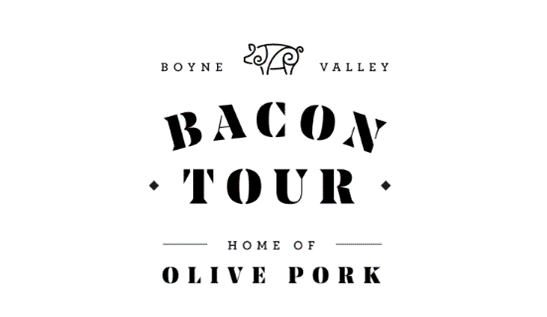
The Bacon Tour proposes to be a location where people can come and learn about the history of food and what key foods played a role in the development of humans as top of the food chain.
This will be done through three immersive, audio-visual rooms, looking at Human, Environmental and Animal Health and each tour group (15) will finish with a bacon tasting experience – Belly, Back, Smoked and Olive fed bacon. Each group and then continue the conversation in the café and online.
This story will tell the history of the Boyne Valley through food, for example:
- 6,000 BC: Hunters decided to settle in the Boyne Valley due to the large number of animals, like pigs, and fish – this went so well that they built Newgrange to worship nature to this yearly bounty
- 1,000 AD: The Cistercian Monks arrive in Mellifont Abbey. They were the original R&D experts and set up research farms (“Granges”, le grange) to improve yield. One of the major advances they discovered was you can get higher quantities of food from land if you rotate crops. This increased the abundance of food being produced in the Boyne Valley.
- 1,169 AD: The Normans arrive and the English arrive to fight them. This begins the English rule of Ireland and the exporting of the best of Irish food such as beef and pork to major UK cities.
- 1,589 AD: The potato arrives in Ireland. This was the perfect crop for soils and saw a massive uptake and resulted in big increases in the population and Ireland becomes the most populated country in Europe in 1841 (8,175,124) and ‘that on arable land the population was denser than that of China’ – UK Prime Minister, Disraeli. With the increase in potatoes also came the increase in the pig population as they could eat the waste potatoes and were then killed when there were no potatoes available.
- 1760 AD: Start of the industrial Revolution in Great Britain – one of the major reasons why it was in Britain was down to their access to high quality meat and dairy from the East Coast of Ireland. This also created the technology to utilise fossil fuels such as oil at huge scale.
- The right food gives power to the brain. The brain can then work and create and retain useful knowledge. Useful knowledge leads to technology. Technology leads to economic growth and expansion of cities.
- 1950-Now: Cities require a steady supply of high-quality foods which created the need to intensify agriculture and created farm such as the pig farm in the middle of the twentieth century to now.
- The Anthropocene: We are now in an era of man-made climate change. This means we have to adapt our behavior to save the world. Does that mean less meat, no meat or better-quality meat? Also, we have a large number of health problems. What does this mean for our food choices, should we live a low sugar or a low carbohydrate lifestyle? What about the animals, what quality of life should they have?
- These are also questions which will be explored in “The Bacon Tour”. In the property adjacent to the hotel. It is anticipated that this can attract 30,000 visitors after five years.
This is “shovel ready” and went out to tender in March 2019 but was shelved due to the pandemic. This element is not essential but is an important part in bringing a tourism attraction of note to County Louth and in that way the planning application would gain extra kudos from the planners.
The owner will fund and develop this element of the project.
Flag & Management: Free to new owner
Current Owner: The Marry family
Main Photo: The project as envisaged
Financials: A fuller development plan, with EOI…and a new Teaser mailer
Tenure: Freehold
Agent: THPT is direct to the owner
Date Posted: July 2022…Updated September 2022
THPT Comment: This is a great development opportunity for anyone looking for an eco-resort in an area of Ireland with large numbers of tourists, with nowhere to stay! 250,000 annual visitors to the UNESCO site, 850,000 to Tayto Park, 20 minutes from site and significant wedding, golf and conference business business currently in the area. The new teaser mailer has been developed by Failte Ireland, who are supporting the development
Hotel & Serviced Apartment owners can be naturally reticent in publicising their property is for sale…for confidentiality reasons, for staff and current client reasons, so the properties featured in this section will either be “generic” or “name specific”
Each week we mail the opportunities posted in that period, but check-out the tab “Hotels Available” and call us for details of “Under the Table” – deals not posted on the site at all.
The Hotel Property Team (THPT) is a small group of highly experienced business professionals. Between us, we provide a range of skills and experience which is directly relevant to those involved in the hotel property market. For more information – Visit www.thpt.co.uk or email info@thpt.co.uk
MISREPRESENTATION ACT 1967. This information is provided as a general guide and is not intended to be constructed as a statement of fact upon which interested parties can rely. All interested parties should make their enquiries by inspection or otherwise. Neither The Hotel Property Team (trading name of Impetus Marketing 2006 Ltd) nor any person in our employment has the authority to make, give or imply any representation or warranty whatsoever relating to the premises referred to in these particulars. These details do not constitute any offer, contract or any part thereof and all negotiations relating to the premises should be conducted through THPT.


